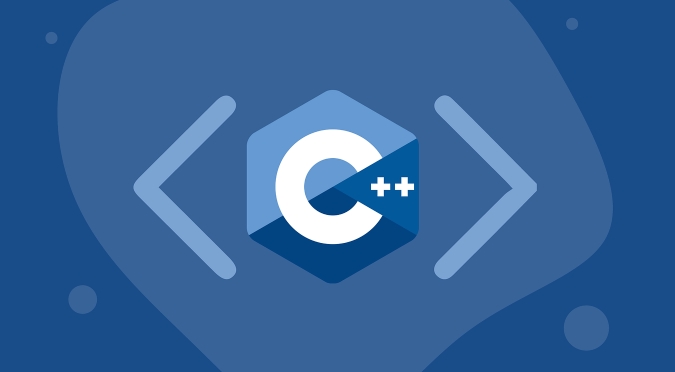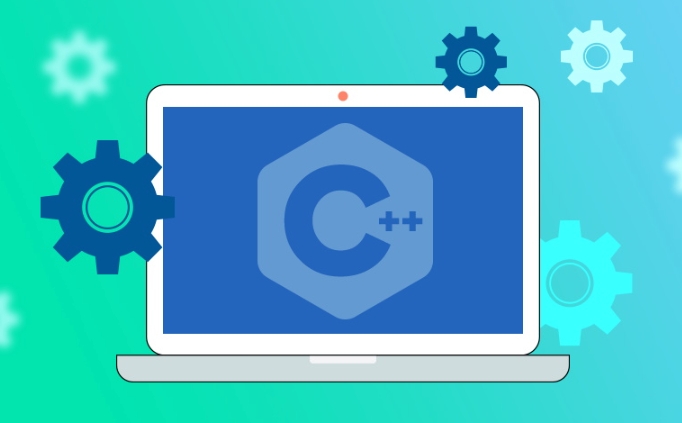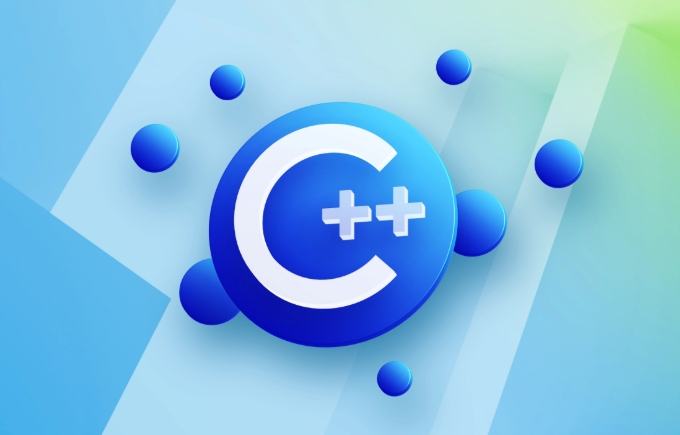The C standard library helps developers improve code quality by providing efficient tools. 1. STL containers should be selected according to the scene, such as vector suitable for continuous storage, list suitable for frequent insertion and deletion, and unordered_map is suitable for fast search; 2. Standard library algorithms such as sort, find, and transform can improve efficiency and reduce errors; 3. Intelligent pointers unique_ptr and shared_ptr effectively manage memory to avoid leakage; 4. Other tools such as optional, variant, and function enhance code security and expressiveness. Mastering these core functions can significantly optimize development efficiency and code quality.

The C standard library is a core set of tools that every C developer needs to be familiar with. It not only provides basic data structures and algorithms, but also hides many practical but easily overlooked details. If you have written some C code, you may find that many problems can actually be solved through the existing functions of the standard library, but you may not have realized it yet.

1. STL container: It is important to choose the right type
STL (Standard Template Library) contains a series of commonly used container classes, such as vector , map , set , etc. They each have applicable scenarios, and choosing the right one can significantly improve performance and readability.
-
vectoris suitable for storing data continuously, with high access efficiency, but insertion and deletion are slower in the middle. -
listis suitable for frequent insertion and deletion operations, but the random access efficiency is poor. - If you need a quick lookup,
unordered_mapis usually faster thanmapbecause it is implemented based on a hash table.
A common misunderstanding is to use vector no matter what the situation is. In fact, when you need to frequently query keywords, it is more appropriate to use map or unordered_map .

Also, pay attention to the memory management strategy of the container. For example, vector will reallocate memory and copy original elements when expanding capacity, which needs to be paid attention to in performance-sensitive scenarios.
2. Algorithms and iterators: Don't make your own wheels
The standard library has a rich variety of algorithms, from sorting to searching to transformations, covering almost all operations common in daily development. for example:

-
std::sort()can sort containers -
std::find()is used to find out whether an element exists -
std::transform()can generate new data without changing the original data
When using these algorithms, most of the logic processing can be accomplished with iterators. And these algorithms are optimized and are usually more efficient and safer than the loops you write yourself.
For example, if you want to multiply all elements in a vector by 2, you can write this:
std::vector<int> data = {1, 2, 3, 4};
std::transform(data.begin(), data.end(), data.begin(), [](int x) { return x * 2; });This is much clearer than a manual write loop and is less prone to errors.
3. Smart pointer: Make memory management safer
The use of bare pointers in early C could easily lead to memory leaks, while modern C introduced smart pointers such as unique_ptr and shared_ptr , which greatly reduced such problems.
-
unique_ptrmeans exclusive ownership, cannot be copied, can only be moved -
shared_ptrallows multiple pointers to share the same object, and automatically release resources through reference counting internally.
It is recommended to avoid using original pointers unless there are special needs. Especially in complex object life cycle management, smart pointers are almost a must.
However, pay attention to the problem of circular references: if two shared_ptr hold each other, the memory will never be released. At this time, you can use weak_ptr to break the loop.
4. Other utility tools: Don't ignore small but beautiful features
In addition to containers and algorithms, the standard library also has some lightweight but very useful components:
-
std::optional: Used to express a value that may not exist, which is safer than returning a null pointer -
std::variant: Similar to union, but can save multiple types of values -
std::functionand lambda expressions: simplify the use of callback functions
For example, if you want to write a function that returns a possible failure, you can use std::optional :
std::optional<int> findValue(const std::vector<int>& data, int target) {
auto it = std::find(data.begin(), data.end(), target);
if (it != data.end()) {
return *it;
}
return std::nullopt;
}Such interface semantics are clearer, and it is not easy for the caller to forget to judge whether it is valid.
Basically that's it. The C standard library has huge content, but mastering the commonly used parts can allow you to write more concise, safe and efficient code. Some features seem simple, but they can indeed solve a lot of trouble in actual projects.
The above is the detailed content of C Standard Library Explained. For more information, please follow other related articles on the PHP Chinese website!

Hot AI Tools

Undress AI Tool
Undress images for free

Undresser.AI Undress
AI-powered app for creating realistic nude photos

AI Clothes Remover
Online AI tool for removing clothes from photos.

Clothoff.io
AI clothes remover

Video Face Swap
Swap faces in any video effortlessly with our completely free AI face swap tool!

Hot Article

Hot Tools

Notepad++7.3.1
Easy-to-use and free code editor

SublimeText3 Chinese version
Chinese version, very easy to use

Zend Studio 13.0.1
Powerful PHP integrated development environment

Dreamweaver CS6
Visual web development tools

SublimeText3 Mac version
God-level code editing software (SublimeText3)
 Completed python blockbuster online viewing entrance python free finished website collection
Jul 23, 2025 pm 12:36 PM
Completed python blockbuster online viewing entrance python free finished website collection
Jul 23, 2025 pm 12:36 PM
This article has selected several top Python "finished" project websites and high-level "blockbuster" learning resource portals for you. Whether you are looking for development inspiration, observing and learning master-level source code, or systematically improving your practical capabilities, these platforms are not to be missed and can help you grow into a Python master quickly.
 What is high-frequency virtual currency trading? The principles and technical implementation points of high-frequency trading
Jul 23, 2025 pm 11:57 PM
What is high-frequency virtual currency trading? The principles and technical implementation points of high-frequency trading
Jul 23, 2025 pm 11:57 PM
High-frequency trading is one of the most technologically-rich and capital-intensive areas in the virtual currency market. It is a competition about speed, algorithms and cutting-edge technology that ordinary market participants are hard to get involved. Understanding how it works will help us to have a deeper understanding of the complexity and specialization of the current digital asset market. For most people, it is more important to recognize and understand this phenomenon than to try it yourself.
 Explain RAII in C
Jul 22, 2025 am 03:27 AM
Explain RAII in C
Jul 22, 2025 am 03:27 AM
RAII is an important technology used in resource management in C. Its core lies in automatically managing resources through the object life cycle. Its core idea is: resources are acquired at construction time and released at destruction, thereby avoiding leakage problems caused by manual release. For example, when there is no RAII, the file operation requires manually calling fclose. If there is an error in the middle or return in advance, you may forget to close the file; and after using RAII, such as the FileHandle class encapsulates the file operation, the destructor will be automatically called after leaving the scope to release the resource. 1.RAII is used in lock management (such as std::lock_guard), 2. Memory management (such as std::unique_ptr), 3. Database and network connection management, etc.
 PHP array_column function redefinition error: Compatibility and modern practice
Jul 25, 2025 pm 08:06 PM
PHP array_column function redefinition error: Compatibility and modern practice
Jul 25, 2025 pm 08:06 PM
This article aims to resolve the common Cannotredeclarearray_column() function redefinition error in PHP development. This error usually occurs when trying to customize the array_column function, which is already built-in in newer versions of PHP. The article will explain in detail how to safely implement the old version of Polyfill solution through conditional judgment function_exists(), as well as best practices to directly remove redundant custom functions in a modern PHP environment to ensure the robustness and maintainability of the code.
 C vector get first element
Jul 25, 2025 am 12:35 AM
C vector get first element
Jul 25, 2025 am 12:35 AM
There are four common methods to obtain the first element of std::vector: 1. Use the front() method to ensure that the vector is not empty, has clear semantics and is recommended for daily use; 2. Use the subscript [0], and it also needs to be judged empty, with the performance comparable to front() but slightly weaker semantics; 3. Use *begin(), which is suitable for generic programming and STL algorithms; 4. Use at(0), without manually null judgment, but low performance, and throw exceptions when crossing the boundary, which is suitable for debugging or exception handling; the best practice is to call empty() first to check whether it is empty, and then use the front() method to obtain the first element to avoid undefined behavior.
 How to develop AI-based text summary with PHP Quick Refining Technology
Jul 25, 2025 pm 05:57 PM
How to develop AI-based text summary with PHP Quick Refining Technology
Jul 25, 2025 pm 05:57 PM
The core of PHP's development of AI text summary is to call external AI service APIs (such as OpenAI, HuggingFace) as a coordinator to realize text preprocessing, API requests, response analysis and result display; 2. The limitation is that the computing performance is weak and the AI ecosystem is weak. The response strategy is to leverage APIs, service decoupling and asynchronous processing; 3. Model selection needs to weigh summary quality, cost, delay, concurrency, data privacy, and abstract models such as GPT or BART/T5 are recommended; 4. Performance optimization includes cache, asynchronous queues, batch processing and nearby area selection. Error processing needs to cover current limit retry, network timeout, key security, input verification and logging to ensure the stable and efficient operation of the system.
 C bit manipulation example
Jul 25, 2025 am 02:33 AM
C bit manipulation example
Jul 25, 2025 am 02:33 AM
Bit operation can efficiently implement the underlying operation of integers, 1. Check whether the i-th bit is 1: Use n&(1
 C function example
Jul 27, 2025 am 01:21 AM
C function example
Jul 27, 2025 am 01:21 AM
Functions are the basic unit of organizing code in C, used to realize code reuse and modularization; 1. Functions are created through declarations and definitions, such as intadd(inta,intb) returns the sum of the two numbers; 2. Pass parameters when calling the function, and return the result of the corresponding type after the function is executed; 3. The function without return value uses void as the return type, such as voidgreet(stringname) for outputting greeting information; 4. Using functions can improve code readability, avoid duplication and facilitate maintenance, which is the basic concept of C programming.






